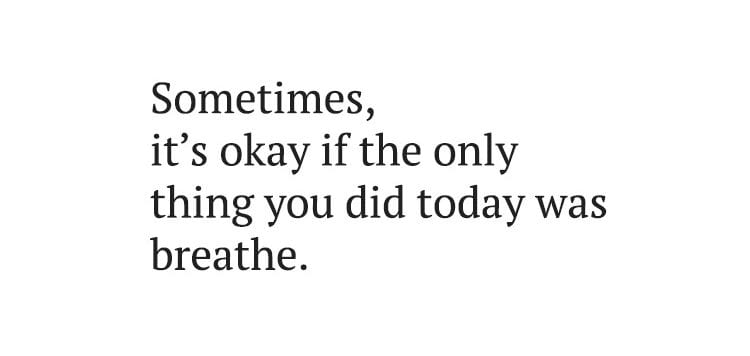Too often, we worry or think about what is going to happen in the future and we ignore the moment that is now. We may have a scheduled vacation in the future and spend our time daydreaming about when we go. When the time arrives and we finally get to go, we worry about what is happening at work and how far behind we will be when we get back.
This causes anxiety and causes us to let the present go by and lose that precious time.
Anxiety creates feelings of fear, apprehension, worry and unease. Feeling anxious is a normal reaction to some future stressful events and normally dissipates once the event has passed.
However, in extreme cases, these feelings are consistent and constant, affecting a person’s ability to function normally and experience positive emotions. This is called anxiety disorder and is classified as mental condition that can be diagnosed and treated by a psychiatrist, psychologist or therapists.
There are however certain steps that people suffering with anxiety or from anxiety disorder can take in order to start living in the moment:
1. Breathe

Breathing exercises and meditation are key ways to combat anxiety. Breathing in through the nose and out through the mouth for a count of four has a calming effect on the body and the brain. It allows additional oxygen to the brain and body, diminishing the symptoms of anxiety as well as diverts the focus of the brain on the cause or trigger of the anxiety attack.
2. Evaluate

Once the brain is no longer trapped in an anxious thought cycle, it is important to evaluate the circumstances surrounding the anxiety. The following questions will help with this assessment:
- What is the event or circumstance that caused feelings of anxiousness?
- What is the worst outcome of experiencing the event?
- What is the best outcome for the situation?
The simple process of evaluating the stressful situation can help alleviate the anxious feelings. Being able to objectively determine what the worst and the best outcomes can help allay the fear and apprehension.
3. Identify the Real Cause of Anxiety

There are often underlying causes of anxiety that are more difficult to identify. It is not the actual event or a circumstance that causes these negative emotions but rather a fear associated with the factors surrounding the situation.
For example, a person who is anxious about attending a board meeting may really suffer from social anxiety.
4. Mindfulness

The above steps may seem like a lengthy process but in fact take place in a matter of minutes, creating the ability to move forward and enjoy the moment. However, in order for the steps to have the greatest impact, it is important to:
- Stop thinking once the root cause of the anxiety has been determined. Overthinking a situation can make mountains out of molehills.
- Don’t focus on events that will be occurring in the far future.
- Stop counting the minutes until an event arrives or ends and forget about time altogether.
Make sure that you are mindful of all your actions and senses while you are in the moment. This is also called mindfulness and it means deliberately thinking about the present and experiencing what is happening right at this moment. Instead of being consumed by your thoughts, you pass no judgement on them. This will help to reduce stress and anxiety.
Becoming mindful takes practice to turn your thoughts into what is happening right now. When you go to work, focus on the task at hand and make an active effort to only think about what you are doing. If you are working on a task at home such as doing dishes, focus only on the smell of the dishwashing liquid, the sound of the water running and on your arm and hand that is moving.
If you want to relax, think about only the subtle sensations of your body and your environment. Feel your back relax, smell the air surrounding you and listen to the sounds around you. Work on quieting your mind by focusing on your senses.
This is a skill that takes time to develop. Practice anytime that you can. At first, just try for a few seconds. The more you practice, the longer your thoughts will stay in check. As you practice, you will find more peace and a greater happiness with the ability to enjoy life to its fullest.
You just read a guest post by CBT Worksheets.






